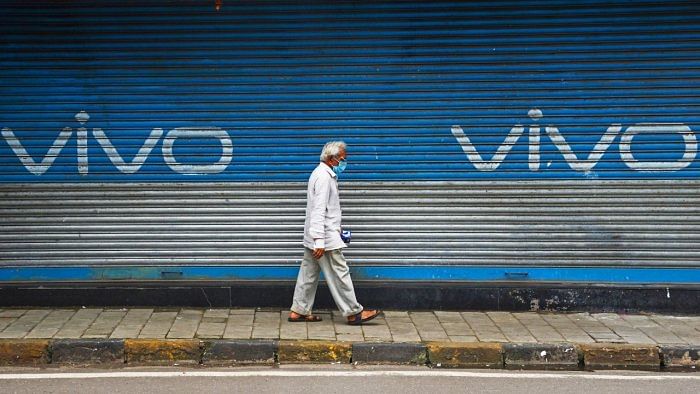
The Enforcement Directorate on Thursday said the Indian arm of the Chinese smartphone maker Vivo remitted nearly half of its turnover, which amounts to Rs 62,476 crore out of Rs 1.25 lakh crore, mainly to China to avoid paying taxes here even as China warned that “frequent” probes will “impede” business environment” in the country and impact confidence of investors from other countries.
Ministry of External Affairs spokesperson Arindam Bagchi said companies operating in the country need to follow the laws of the land and legal authorities are taking steps as per law. "I don't see the case to make comments as such on it," he said.
The ED said it has carried out searches at 48 locations of Vivo Mobiles India Pvt Ltd and its 23 associated companies, including Grand Prospect International Communication Pvt Ltd (GPICPL), on Tuesday during which it seized Rs 465 crore lying in 119 bank accounts. It included fixed deposits of Rs 66 crore of Vivo India, two kg gold bars and Rs 73 lakh in cash.
"These companies are found to have transferred huge amounts of funds to Vivo India. Further, out of the total sale proceeds of Rs 1,25,185 crore, Vivo India remitted Rs 62,476 crores. i.e., almost 50% of the turnover out of India, mainly to China. These remittances were made in order to disclose huge losses in Indian incorporated companies to avoid payment of taxes in India," an ED statement said.
Former Vivo Director Bin Lou, who was also part of GPICPL, left India in 2018 while other directors Zhengshen Ou and Zhang Jie left India in 2021. The ED also alleged that the employees of Vivo India, including Chinese nationals, did not cooperate during the searches and "tried to abscond, remove and hide digital devices which were retrieved by the search teams”.
The searches came after the ED filed a case of money laundering based on an FIR registered by Delhi Police against a distributor of the mobile maker in Jammu and Kashmir, alleging that forged identity documents and fake addresses were used by a few Chinese shareholders at the time of incorporation of the company here. It is suspected that the alleged forgery was to enable laundering of illegally generated funds.
According to the ED, Bin Lou "incorporated multiple companies across the country spread across various states, a total of 18 companies around the same time, just after the incorporation of Vivo in the year 2014-15" while Zhixin Wei had incorporated four other companies. These companies included Weiwo Communication Private Limited (Bangalore), Haijin Trade India Private Limited (Kochi), Joinmay Electronic Pvt Ltd (Mumbai) and Haicheng Mobile (India) Private Limited (New Delhi).
Chinese embassy spokesperson Wang Xiaojian said in a statement, "frequent investigations by Indian authorities into Chinese enterprises not only disrupt their normal business activities and damage their goodwill but also impede the business environment in India and will affect the confidence of market entities from other countries, including Chinese firms, to invest in India".
"We hope the Indian side will abide by laws as they carry out investigation and enforcement activities and provide a truly fair, just and non-discriminatory business environment for Chinese companies investing and operating in India," he said, adding, "the essence of China-India economic and trade cooperation is for mutual benefit and win-win results."
Asked about the searches and Chinese reaction to the searches, Bagchi said companies operating in the country need to follow the laws of the land and legal authorities are taking steps as per the law of the land. "I don't see the case to make comments as such on it," he said.
On questions of Vivo Directors leaving India, he said, "we have not received information from the authorities. It's a legal issue, as and when we will receive something and there is a need to speak with China, we have a system of mutual assistance."
Earlier in the day, PTI reported, China expressed hope that India will conduct the probe into Viva into Vivo in accordance with the law and regulations and provide a "truly fair" and "non-discriminatory" business environment to China's firms.
Chinese Foreign Ministry spokesman Zhao Lijian told a media briefing in Beijing that they were closely following the developments. "As I have stressed many times, the Chinese government has always asked Chinese companies to abide by laws and regulations when doing business overseas. In the meantime, we firmly support Chinese companies in safeguarding their lawful rights and interests," he said.
